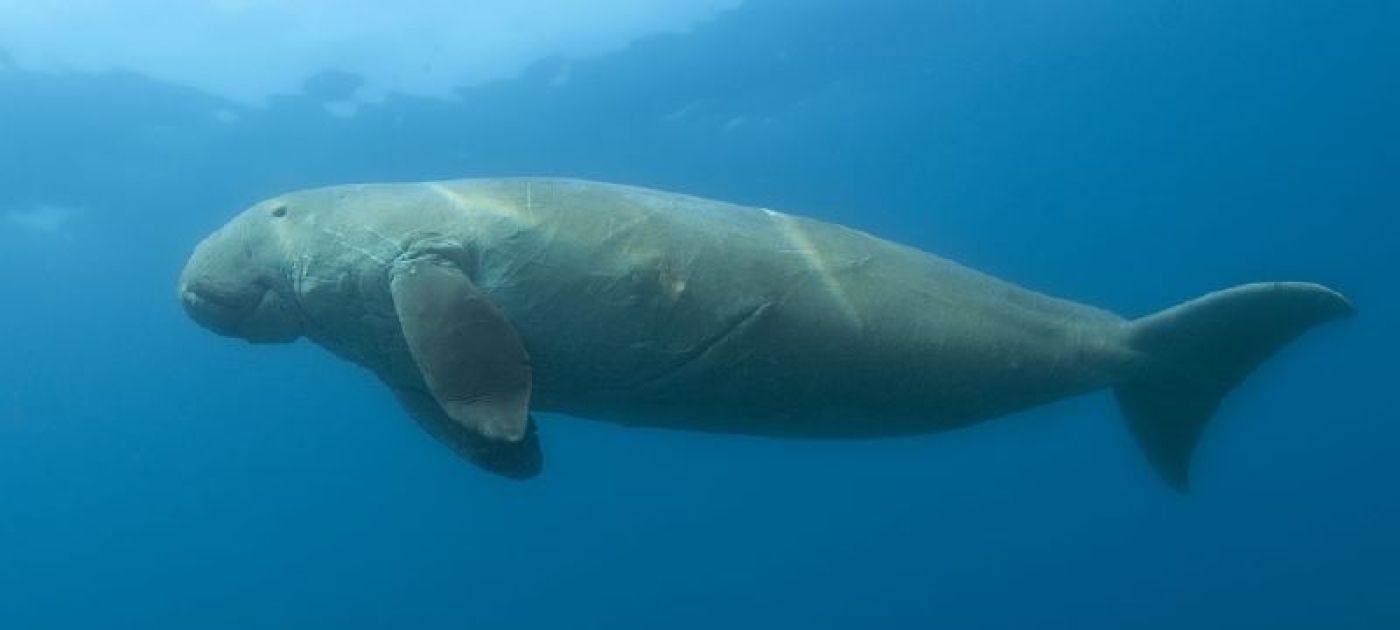
Report highlights 2 Egyptian projects among major clean energy ventures in N.Africa
A report by Energy Capital & Power highlighted two Egyptian projects – Suez Wind Power ...

Abu Dhabi’s initiative for restoring the ecosystem along its coast represents a model for targeting both land and sea and offers new hope for dugongs as scientists declared the rare marine mammal functionally extinct in China this week.
Abu Dhabi’s plan to restore another 12,000 ha of mangroves, coral reefs and seagrass meadows could give respite to what is believed to be the world’s second-largest population of the ocean’s only herbivorous mammal, say experts. While sea turtles and local communities also stand to benefit from the revival of fisheries and tourism.
“The presence, or absence of dugong tells us a lot about the health of an ecosystem, its diversity and levels of pollution,” said Mirey Atallah, Head of the United Nations Environment Program (UNEP) Climate for Nature Branch.
“The Abu Dhabi initiative is a model in that it targets restoration both on land and at sea, therefore benefiting not only dugongs but also people living in that area,” adds Atallah. “With climate change, pollution and other stressors, dugongs would risk starving to death as their cousin the Manatee in Florida. This is a laudable initiative that we hope to see replicated in other seagrass beds.”
The ocean’s only herbivorous mammal, dugongs, resemble dolphins but with a wider nose and a whale-like tail. With their gentle expression, slow movements and liking for shallow water, storm-tossed sailors mistook them for mermaids in centuries past.
Once reported regularly across tropical and sub-tropical waters from East Africa to Vanuatu, dugongs have been hard hit by hunting, habitat loss, and entanglement in deadly fishing gear. They have already died out in some regions and are considered vulnerable to extinction globally.
In the latest setback, scientists concluded this week that the species has gone “functionally extinct” in China, meaning that if there are any left, they are too few to survive for long. Among nearly 800 Chinese fishers interviewed, only three reported seeing a dugong in the past five years. The last verified field observation was in 2000, the study said.
Dugong populations are declining sharply in many other countries, including Kenya, Japan and Indonesia. But the Abu Dhabi project hopes to buck that trend by restoring coastal ecosystems that encompass the all-important seagrass beds on which the dugong graze.
Situated in the southwest of the Arabian Gulf, the Emirate’s coastal ecosystems and traditional fishing industry face numerous pressures, from dredging to reclaiming land for housing and industrial development, and pollution from the region’s oil industry.
To safeguard key areas for biodiversity, Abu Dhabi’s Environment Agency has developed plans to ensure the recovery of fisheries, the restoration of mangroves and seagrass beds, and the rehabilitation of coral reefs.
Scientists will be hoping the project yields positive results for the regional dugong population, which in the past were recorded in their thousands off the UAE and other Gulf countries (only Australia is believed to have a larger population). Also likely to benefit are four species of turtle, three kinds of dolphin, and many of the 500 fish species present around Abu Dhabi’s coasts and islands.
The restored ecosystems are expected to sequester large amounts of carbon and provide economic benefits through jobs, food supplies and ecotourism.
In 2017, a massive coral bleaching event killed more than 70 per cent of the corals in Abu Dhabi’s Sea but now the country is dedicating its efforts to restoring mangroves, corals, and seagrass so that dugongs, sea turtles and our coastal communities can thrive.
Some 7,500 ha of mangroves have already been restored under the project, which authorities aim to complete by 2030. This date marks the conclusion of the UN Decade on Ecosystem Restoration and when countries aim to achieve the Sustainable Development Goals as well as the targets of the Paris Agreement on climate change.
The role of ecosystem restoration in tackling the climate and biodiversity crises and reducing the risk of extinctions will be on the agenda when world leaders gather in Montreal in December to adopt the post-2020 global biodiversity framework.
A report by Energy Capital & Power highlighted two Egyptian projects – Suez Wind Power ...
The opening concert of the Annual Meeting 2025 in Davos-Klosters will address the pressing issues ...
Juhayna Food Industries proudly announced that its agricultural arm, El Enmaa for Agricultural Development, has ...


اترك تعليقا